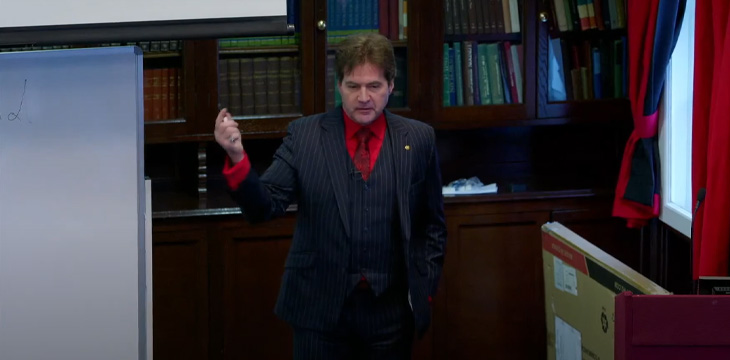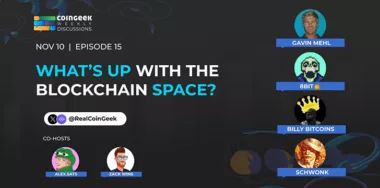Digital ID systems are probably inevitable, but should we be afraid of them? As Bitcoin inventor Dr. Craig S. Wright points out in his recent The Bitcoin Masterclasses series, having a digital identity doesn’t mean losing your privacy.
This article covers Session 2 of the second day of the Bitcoin Masterclasses, a workshop held in London. There are plans to have other similar events in other cities around the world, but the London series is available on CoinGeek’s YouTube channel.
Private identity and identity proofs
Can you still have multiple identities? Well, yes and no—you still need a single identity at the base of everything, Dr. Wright says.
“Yes, you can have multiple identities, and you can link and un-link them. You can have your corporate identity, and you can have your private one. For every person under the age of 25, you can put a whole lot of shit on TikTok that is going to haunt you for the rest of your life,” he states.
No matter how much privacy you desire, there are many cases where you’ll need to prove you’re a real person. Confirming you own an asset like a car, property, or company shares are common examples.
The challenge is to be able to link all this data when needed and isolate some attributes when privacy is an issue. Using the example of his own physical driver’s license, Dr. Wright points out that showing it will prove his age to a random stranger (e.g., at a bar), but it will also reveal his full name and home address to that person. And for some investment deals, you might need to qualify by proving your net worth or bank balance is above a certain level. Can you do this without revealing the exact amount? How do you prove it’s genuine?
Any kind of digital ID could overcome these problems if the system is designed well enough. So far, though, they tend to be just digital facsimiles of the physical record, revealing all.
Here’s where Zero-Knowledge Proof techniques come in, Dr. Wright conveys. There are several ways to do this and certain ways to include information in a digital certificate, including tokenization and SPV proofs, which he workshops with nChain Director of Research Dr. Owen Vaughan.
ID attributes: when and how to use them?
Similar to software authentication, the digital certificate takes all the data present and hashes it to verify whether it’s valid or not. Now, how could you isolate individual pieces of information within that certificate?
“You would consider Merkelizing it?” Vaughan asks. Dr. Wright diagrams this idea on the whiteboard, pondering how deep you could make the structure with available computing power (there could even be thousands of data attributes). You’d also need the ability to alter some attributes, like a change of home address or relationship status (or, these days, even gender). He says this sort of thing needs a standardized format to be usable.
The Silicon Valley adage “move fast and break things” doesn’t work in digital identity, he notes. This is something we need to design well and get right, so everything will still work a century or two from now.
One problem with today’s digital identity processes is those behind them actually want to record as much information as possible—it’s far too useful to marketers and data miners. The (hard to believe) common excuse is that it’s too much effort to create a system that keeps some attributes private.
With blockchain records on scalable Bitcoin and set standards, all this would be much easier to do. Even for non-coders, there’s a need to design standards and form appropriate policies around attributes, links, and situations in which to use each one. The Bitcoin Masterclasses audience brainstorms this during the session, but it’s also an interesting challenge for those watching at home with more time to think about it.
Watch: The Bitcoin Masterclasses Day 1: Confidentiality, Privacy, Anonymity & Party to Party
New to blockchain? Check out CoinGeek’s Blockchain for Beginners section, the ultimate resource guide to learn more about blockchain technology.










